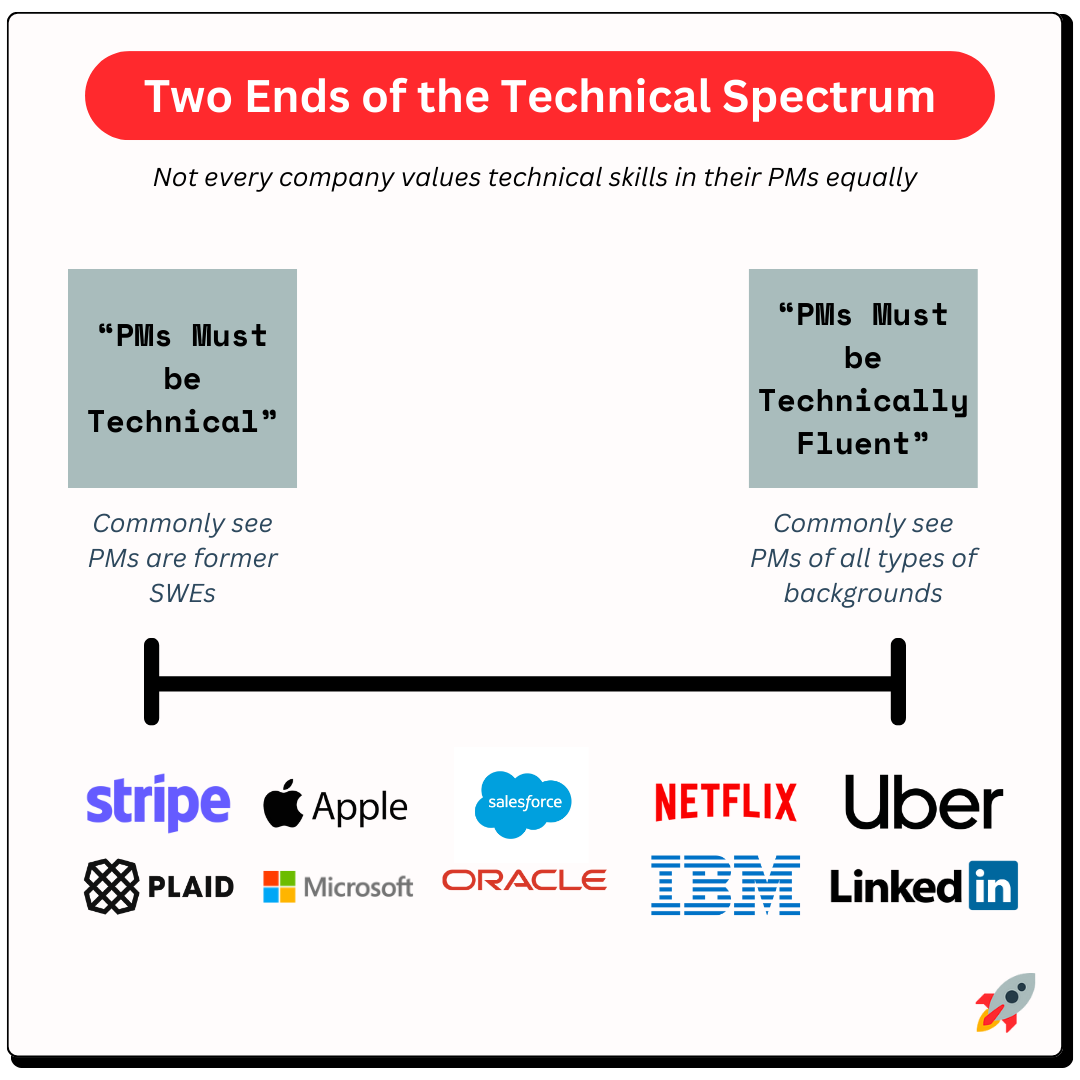Let’s be real: 95% of the PM day doesn’t require technical knowledge.
Feature QA
Writing PRDs
Handling the Planning Cycle
So you might find it surprising that one of the most common reason companies like Google, Stripe, and Amazon reject PMs is the technical interview.
This is the weekly ‘Getting a PM Job’ series. Once a week, we cover career related topics. You can manage your subscription to only receive the product content here.
Who uses the technical interview
You can’t ignore technical skills if you are a PM ever looking to job search again.
The technical interview is alive and well for PMs. Including at some of the highest paying, most sought after tech employers.
It actually surprised me once I started doing the research and understanding the landscape.
They’re really everywhere:
Big Tech: Google, Apple, and Microsoft are all known to have technical rounds. Meta and Amazon also have technical rounds for their more technical PMs.
Public Tech Companies: Airbnb, Dropbox, and Spotify have also had reports of technical rounds for some of their PMs.
Successful Private Tech Companies: Places like Plaid, Blend, and Stripe are also known to have a technical round for all PMs.
Small Companies with Tech Founders: Many people I have coached interviewing at startups led by technical founders have had their technical depth tested as well.
So that goes to say, if you’re on the market, it’s worth spending some time on this question type.
What they’re looking for
They’re not looking for you to be an engineer. But they want you to be able to talk to engineers.
They’re not going to ask you complex Leetcode questions. But they are going to assess:
How you work with engineers
Depth of your technical knowledge
How you bridge technical concepts with the user
Rubric Area 1 - How you work with engineers
It’s a timeless PM skill. Do you know how to work with engineers?
Interviewers tend to zone in on:
Do you roll-up your sleeves or are you hands-off?
Do you understand an engineer’s workflow and processes?
Are you able to specify features to sufficient detail?
Some people test this with case too, but almost everyone tests this with behavioral questions.
Rubric Area 2 - Depth of your technical knowledge
The second thing interviewers are looking at is: what is the edge of your knowledge? Where does your technical knowledge end?
So it’s all about understanding:
Do you know what takes a long time and what is complex?
Can you get technical?
Can you have conversations with them about technical concepts?
Will you ask dumb questions to eng or will you be conversant?
Rubric Area 3 - How you bridge technical concepts with the user
Interviewers want to make sure you understood the technical concepts of how products are built: APIs, Databases, the internet’s infrastructure. The goal is to make sure you understand how those technicalities will influence the product experience for the users.
So expect them to test:
Can you bridge how the technical complexities will affect the product experience?
Can you understand technical concepts that enable you to make a strategic decision?
Can you simplify technical concepts to cross-functional partners and leadership?
Differing Philosophies on Technicality
There’s two ends of the spectrum. On each end you have:
“This is a technical product and we need technical PMs.”
These people tend to believe, “the more technical, the better.” You’ll often spot PMs who were former engineers and internal transfers at these types of companies. They tend to think that the worst types of PMs are ‘MBA PMs’.
“We need technically comfortable PMs.”
These folks focus on your ability to go technically deep, but they acknowledge much of PM isn’t a technical job. They just want you to go deep enough to be comfortable with technical constraints and be able to think through trade-offs and edge cases.
Both groups want to make sure you can architect a product. So it’s important to understand databases, how to handle multiple requests, how to scale products, how systems talk to each other, how to do things like storing large media files.
Where PMs Land
These three rubric areas seem easy enough, right?
Well - most people don’t do well on them. Very often, even great PMs get a rating something like this:
That’s why today’s piece exists. Let’s cover the questions you’re likely to see and the knowledge you need.
The Most Common Questions
There are a 7 major technical categories of questions you should be aware of:
Engineering Collaboration
Technical Stories
Computer Science Concepts
Basic Coding
Product Technicalities
System Design
Case
These are the most common questions across them:
I’ll admit, just collecting all these questions made my palms sweat… These are tough!
Today’s Deep Dive
I wanted to create the resource I wanted before all of my technical interviews. So we’re going to peel back several layers of the onion today:
Review of the technical information you need to know for the 150 most common questions
Plan to study this information, practice, and answer questions confidently
The best mock interviews available to let you see how the best answer in action
At over 10K words, it’s the web’s deepest dive into the technical interview for PMs yet…
Keep reading with a 7-day free trial
Subscribe to Product Growth to keep reading this post and get 7 days of free access to the full post archives.




